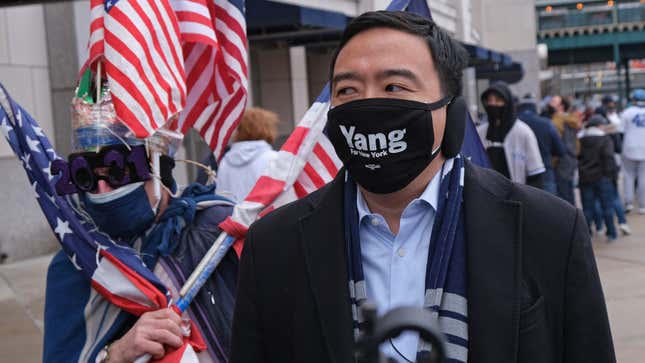

Former presidential candidate and current New York City mayoral race frontrunner Andrew Yang received a litany of criticism over the weekend, particularly for a Twitter post in which Yang celebrated National Pet Day by giving a shout-out to a beloved dog he had to give away.
“On #NationalPetsDay celebrating our dog Grizzly who we raised as a puppy but had to give away because one of our boys became allergic to him,” Yang tweeted. “Miss you Grizz! #dogsforyang.”
Many Twitter users took issue with the fact that the dog breed Yang was displaying, a Maltese, is considered hypoallergenic. But no dog is 100 percent hypoallergenic, and dander from even so-called hypoallergenic dogs can trigger allergic reactions. So the fact that the Yang family had to give away a dog that was triggering allergies for one of their sons isn’t the war crime many are treating it as. But Yang’s follow-up tweet certainly did him no favors.
Yang posted an old video of Grizz barking incessantly and pawing at his leg, begging for attention. Every pet is prone to this kind of behavior at inconvenient moments—a cat plopping down on a computer’s keyboard while its owner is hard at work, a dog yapping in the background during a zoom meeting—but the optics of the unreturned affection were unfortunate given the context.
-

-

-

-

-

-

-

-

-

-

-

-

-

-

-

-

-

-

-

-

-

-

-

-

-

-

-

-

-

-

-

-

-

-

-

-

-

-

-

-








































